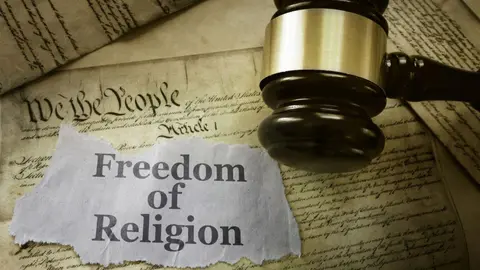Free Courses Sale ends Soon, Get It Now


Free Courses Sale ends Soon, Get It Now



Copyright infringement not intended
Picture Courtesy: https://www.mid-day.com/news/india-news/article/freedom-of-religion-does-not-include-right-to-convert-people-gujarat-govt-in-sc-23258956
Context: The recent clarification by the Gujarat government that Buddhism is a separate religion for religious conversions has started the debate surrounding the Gujarat Freedom of Religion Act (GFR Act).
About Gujarat Freedom of Religion Act (GFR Act)
Provisions of the GFR Act
Recent Amendments (2021)
Stronger Focus on Conversion through Marriage
Shifting Burden of Proof
Recent Developments and Circulars Issued by Gujarat Government
Gujarat Government's Argument
Legal Challenges
|
Religious Freedom in India ●India is a secular state with no official religion. ●Articles 25-28 of the Constitution protect the right to practice, profess, and propagate religion. ●India is a land of many religions, with Hinduism being the majority. Islam, Christianity, Sikhism, Buddhism, and Jainism are also significant. ●India has a long history of religious tolerance, offering refuge to persecuted groups like Jews, Zoroastrians, and Tibetan Buddhists. ●Several Indian states have passed anti-conversion laws to prevent forced conversions. These laws are controversial; some argue they violate religious freedom, while others say they protect vulnerable groups. ●Overall, India's record on religious freedom is mixed. While the Constitution guarantees this right, there are challenges in practice. The debate continues on how to balance religious freedom with preventing coercion and protecting vulnerable communities. |
Conclusion
Must-Read Articles:
Source:
|
PRACTICE QUESTION Q. In the context of the Freedom of Religion under the Indian Constitution, consider the following statements: 1. The government can interfere in religious practices. 2. The State can establish and maintain institutions for religious purposes. 3. The Constitution guarantees the right to convert from one religion to another. 4. The State has the authority to levy taxes on religious properties. How many of the above statements are correct? A) Only one B) Only two C) Only three D) All four Answer: B |
© 2024 iasgyan. All right reserved